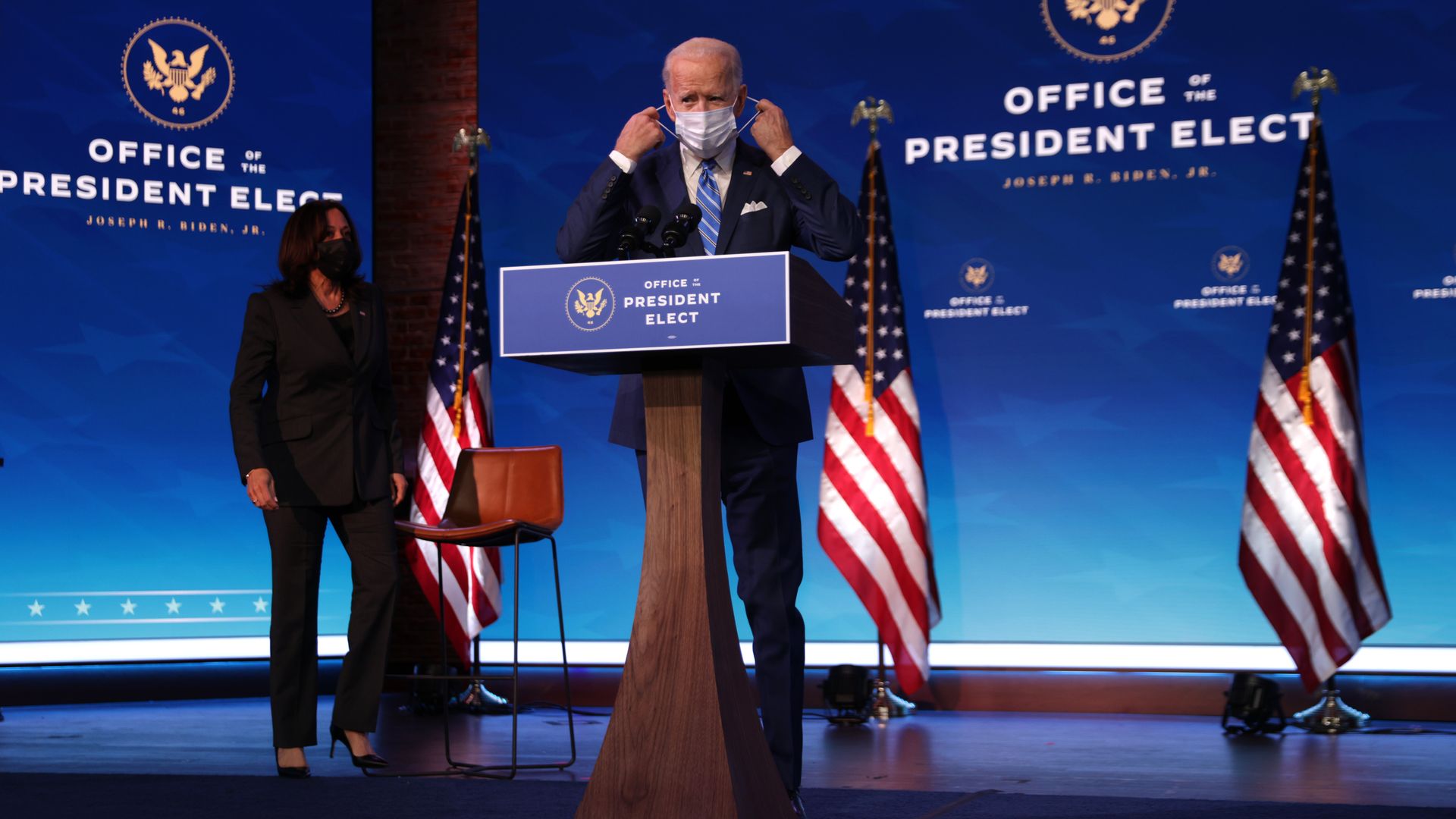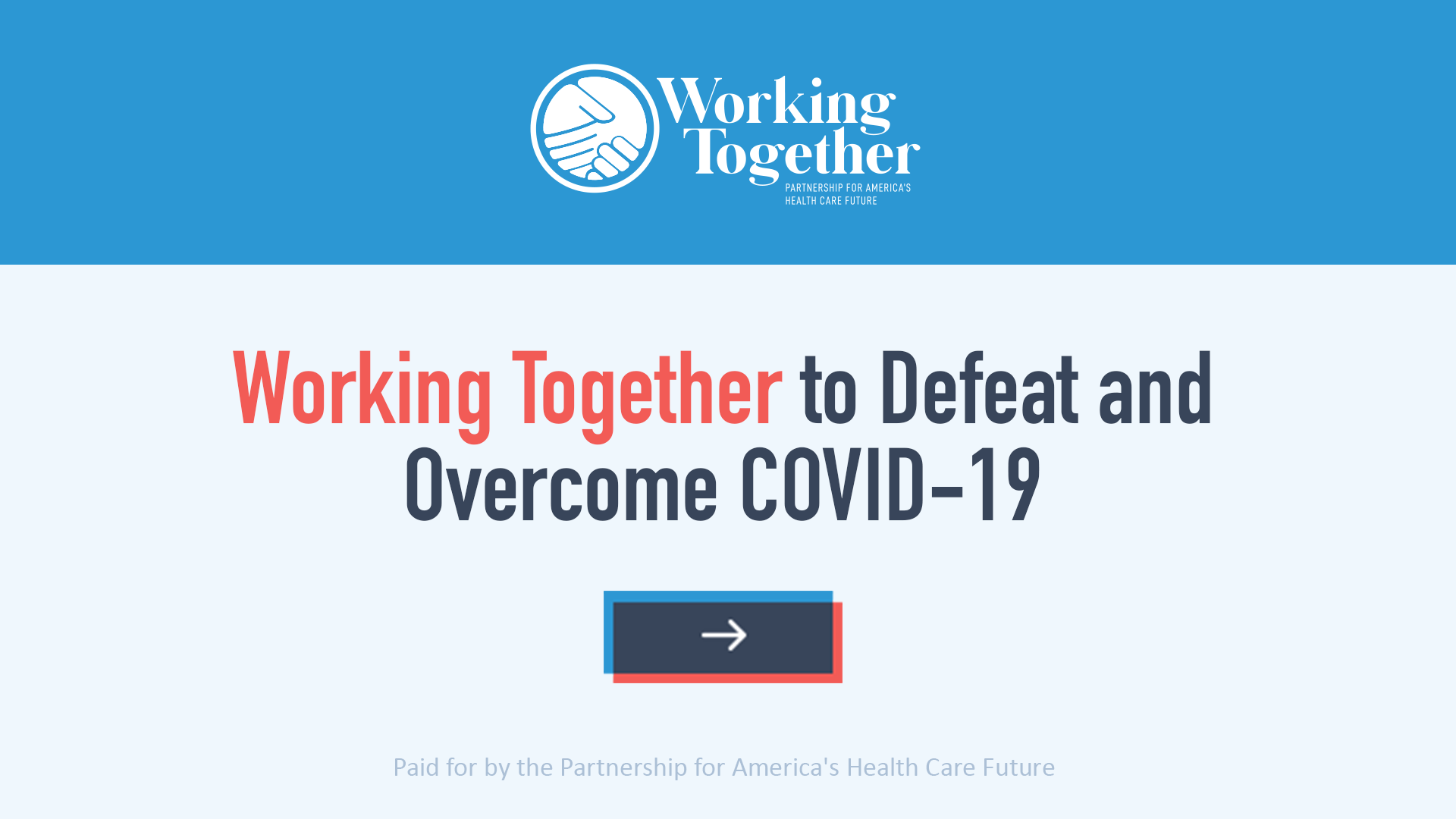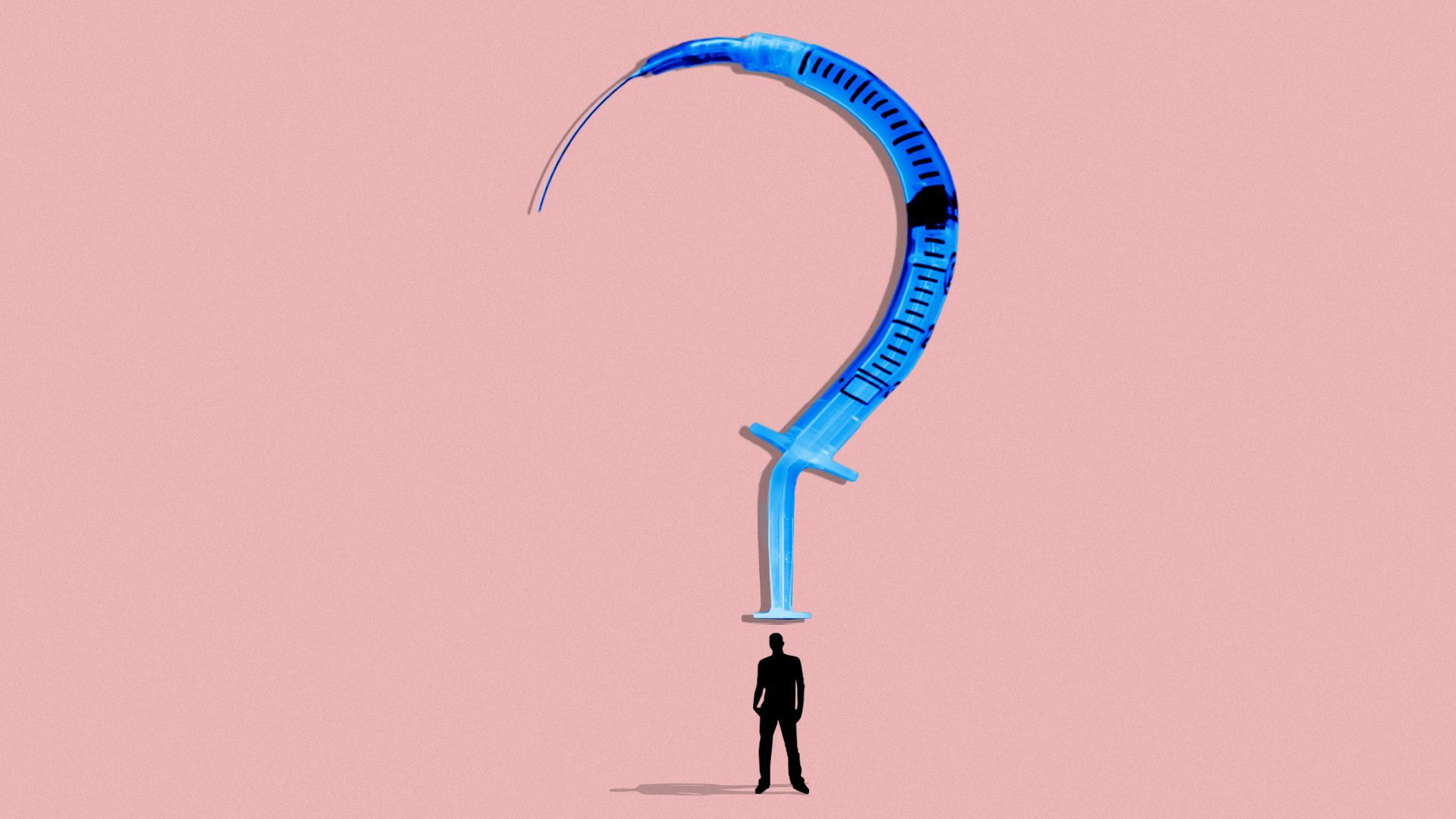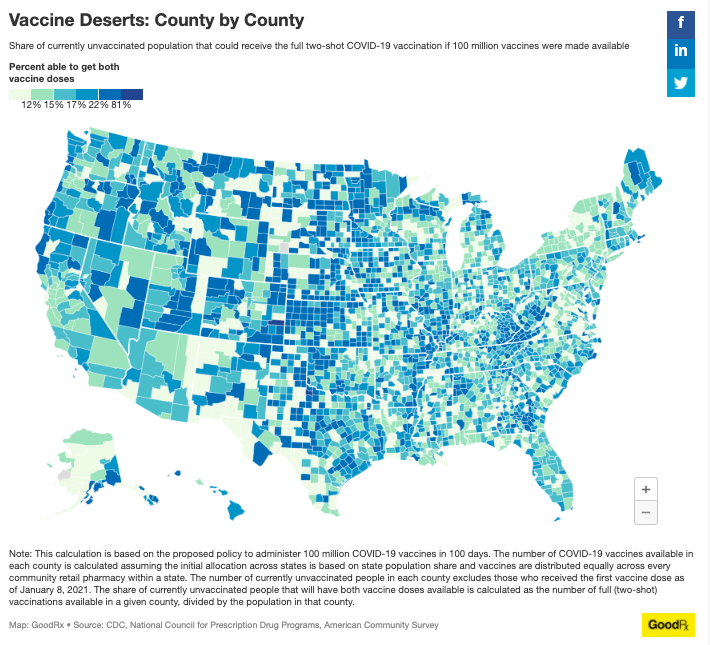| | | | | | | Presented By Partnership for America's Health Care Future | | | | Vitals | | By Caitlin Owens ·Jan 15, 2021 | | Good morning. - Join me today at 12:30pm ET for a virtual event on health care access and affordability in the Biden administration, featuring former FDA commissioner and former CMS administrator Mark McClellan and former Rep. Greg Walden (R-Ore.). Register here.
- And before that, tune in to my Twitter chat with MIT Sloan visiting assistant professor Charles Senteio. We'll discuss racial and ethnic disparities and the pandemic — including potential vaccine disparities. You'll find us at 11am using the hashtag #MITSloanExperts.
Situational awareness: Former FDA head David Kessler has been tapped to lead Operation Warp Speed under the Biden administration. Vitals will be off on Monday for MLK Day. See you Tuesday. Today's word count is 1,381, or a 5-minute read. | | | | | | 1 big thing: Biden's big coronavirus plan |  | | | Photo: Alex Wong/Getty Images | | | | President-elect Joe Biden unveiled a nearly $2 trillion pandemic relief plan last night, $400 billion of which will go directly toward addressing the virus. Why it matters: Money alone can't save us from the virus, and Biden's plan is far from guaranteed to become law, but boosting funding for testing and vaccinations could help bolster the public health tools that experts have been saying for months are vital, yet inadequate. Details: The plan calls for $20 billion for a national vaccine program, which would create community vaccination centers around the country and send mobile vaccination units to areas that are hard to reach. - It would also provide an additional $50 billion for testing and $130 billion to help schools safely reopen.
- Other elements of the plan, like emergency paid leave, would indirectly help tame the virus by helping people stay home when they're sick without sacrificing income.
Biden also slipped one of the biggest pieces of his plan to strengthen the Affordable Care Act into the proposal, which he says is in response to the millions of Americans who have lost health coverage during the pandemic. - He calls for an increase of ACA subsidies, so that enrollees pay no more than 8.5% of their income for coverage. Subsidies are currently capped at 400% of the federal poverty level, creating an affordability cliff for middle-income Americans.
- He also asks Congress to subsidize COBRA through the end of September.
Go deeper. |     | | | | | | 2. Women's health care jobs are lagging behind |  Reproduced from an Altarum report; Chart: Axios Visuals Health care jobs held by women have come back much more slowly than jobs held by men, mirroring trends in the economy overall, Axios' Marisa Fernandez reports. Why it matters: The vast majority of health care workers infected with COVID-19 have been women, and they've borne the brunt of the industry's economic woes, too. By the numbers: Women outnumber men in the health care workforce, but they've suffered steeper job losses because of the pandemic. - 79% of health care jobs held by men have returned to the workforce, compared to only 62% for women, according to a recent report from Altarum.
- Nurses, nursing assistants and medical assistants lost their jobs in large numbers early in the pandemic, due to the freeze on elective procedures.
- And while most of the industry added jobs in the last quarter of 2020, jobs in nursing homes and residential care facilities — which are disproportionately held by women — haven't returned.
"That's really moving from a short-term pandemic impact to a long-term economic impact," said Corwin Rhyan, a co-author of the Altarum report. Between the lines: School closures and a lack of safe child-care options have made it much harder for mothers to reenter the workforce, whether they work in health care or not. - "We see moms experiencing significant wage hits just for being moms and moms of color experiencing the most significant wage hits," said Kristin Rowe-Finkbeiner, executive director at MomsRising.
|     | | | | | | 3. The latest in the U.S. |  Data: The COVID Tracking Project; Note: Does not include probable deaths from New York City; Map: Andrew Witherspoon/Axios More than one-third of the 10 million people in Los Angeles County are believed to have been infected with COVID. More than 1.4 million Americans filed for jobless claims last week — a figure that includes first-time filings for regular state unemployment and another program for non-traditional workers. Grocery delivery company Instacart says it will provide a $25 stipend to its workers who take time off to get vaccinated for COVID-19 in the U.S. and Canada starting on February. Hotels are pushing to become vaccine administration sites, Bloomberg reports. |     | | | | | | A message from Partnership for America's Health Care Future | | Working together to defeat and overcome COVID-19 | | |  | | | | Americans are relying on our health care system now more than ever to provide the health coverage and care they need. That's why America's health care leaders are stepping up and working together to defeat and overcome COVID-19. Learn more. | | | | | | 4. The latest worldwide |  1. President Joko Widodo, 59, was the first Indonesian to receive a coronavirus vaccine on Wednesday. His 77-year-old vice president will have to wait — because he's too old, Axios' Dave Lawler reports. - What's happening: Indonesia is breaking from most other countries by vaccinating working-age people first, believing that they're more likely to spread the disease.
- That approach could make sense in developing countries where the economy is heavily reliant on work that can't be done from home.
2. But the vaccine Indonesia is most relying on, from China's Sinovac, appears to be far less effective than initially believed. - Updated data from Brazil suggests it's just 50.4% effective at preventing infection (it is more effective at preventing severe cases).
- That's a big setback for several developing countries, including Brazil. The most effective vaccines currently available are destined almost entirely for the rich world.
3. In better news, a large study in the U.K. has found that people with prior COVID-19 infections are 94% less likely to get another symptomatic case. 4. The African Union announced today that it had secured 270 million doses from Pfizer, AstraZeneca and Johnson & Johnson. - Most African countries are otherwise entirely reliant on doses from the global COVAX initiative.
5. A WHO team arrived in Wuhan this week to investigate the origins of the virus, work that has long been impeded by the Chinese government. |     | | | | | | 5. Battling Black mistrust of the vaccines |  | | | Illustration: Annelise Capossela/Axios | | | | Civil rights leaders and Black sports icons are publicly taking COVID-19 vaccines to encourage African Americans to follow their example as social media misinformation exploits Black distrust of vaccines, Axios' Russell Contreras reports. Why it matters: The coronavirus has disproportionately struck Black, Latino, and Native American communities, and health officials are racing to reassure skeptical populations that the vaccines aren't clandestine experiments, but needed measures to tame the pandemic. By the numbers: African Americans have been infected with COVID-19 at nearly three times the rate of white Americans, according to the National Urban League. The backstory: In the early 1930s, the federal government launched the Tuskegee Experiment, which denied Black men in Alabama treatment for syphilis and secretly documented how the disease destroyed their bodies over decades. - A U.S. Senate committee in 1972 heard testimony that around 2,000 poor Black women had undergone forced sterilization in previous years stemming from a eugenics-inspired policy.
- These episodes wrecked African Americans' trust in medical institutions, which continues to this day.
What they are saying: "I was proud to get the COVID-19 vaccine earlier today at Morehouse School of Medicine. I hope you do the same!" Baseball Hall of Famer Hank Aaron tweeted earlier this month after getting vaccinated in Georgia. - Former U.N. ambassador and civil rights leader Andrew Young joined Aaron in getting vaccinated.
Go deeper. |     | | | | | | 6. "Pharmacy deserts" could become vaccine deserts | | Millions of Americans who live in "pharmacy deserts" could have extra trouble accessing coronavirus vaccines quickly, according to a new analysis by GoodRx. Why it matters: Places without nearby pharmacies, or with a large population-to-pharmacy ratio, may need to rely on mass vaccination sites or other measures to avoid falling behind. The big picture: Pharmacies will play a huge role in the vaccine rollout, especially as shots become more available to the general population. - But if people have to drive far to get a shot, or if pharmacies can't keep up with local demand, that could leave millions of Americans vulnerable to the virus for longer than people in better-served areas.
- "Pharmacy deserts in turn create 'vaccine deserts' — where the rate of vaccination is slower simply because there aren't enough vaccination appointments available due to limited pharmacy capacity," the GoodRx analysis says.
By the numbers: The incoming Biden administration has set a goal of vaccinating 100 million people in 100 days, or about 16% of the unvaccinated U.S. population, per GoodRx. - But "nearly half of all counties would have a slower local vaccination rate, generating further healthcare access inequities in areas that are already more likely to be under-resourced in the fight against COVID-19," the analysis concludes.
- 177 counties don't have any pharmacies at all, leaving 635,000 people with very limited access.
Go deeper: The growth of "pharmacy deserts" |     | | | | | | Bonus: Where deaths are highest |  Data: The COVID Tracking Project; Map: Andrew Witherspoon/Axios |     | | | | | | 7. Dog of the week | | Ernie. Photo: Jill Wing This week's dog was chosen by my mother. Maybe she will help again next week, which means that the more sentimental your dog's backstory, the better. Meet Ernie! - "Ernie is a rescue from Puerto Rico ... who I've had for about four years. He is an 11-pound Chinese Crested/? mix who was found hiding under some debris in San Juan with three little kittens," writes his mom, Jill.
- "He has become an endearing mascot at Saratoga Hospital in Saratoga Springs, New York, where I work at the front desk. Since the pandemic, he and all therapy dogs have been furloughed until the coast is clear. But nurses and aides who work there always stopped by to visit Ernie and some have even lobbied the CEO to get Ernie back where he belongs.
- "Ern is a cheerful little guy who has found his lot in life as a cheerer-upper."
What's next: Go find yourself an Ernie, because we could all use a cheerer-upper these days. |     | | | | | | A message from Partnership for America's Health Care Future | | Working together to defeat and overcome COVID-19 | | |  | | | | America's leading doctors, nurses, clinicians, hospitals, health insurance providers, biopharmaceutical companies and employers are committed to working together to defeat and overcome the COVID-19 crisis by helping Americans get healthy and stay healthy. | | | | | | Axios thanks our partners for supporting our newsletters.
Sponsorship has no influence on editorial content. Axios, 3100 Clarendon Blvd, Suite 1300, Arlington VA 22201 | | | You received this email because you signed up for newsletters from Axios.
Change your preferences or unsubscribe here. | | | Was this email forwarded to you?
Sign up now to get Axios in your inbox. | | | | Follow Axios on social media:    | | | | | |











No comments:
Post a Comment